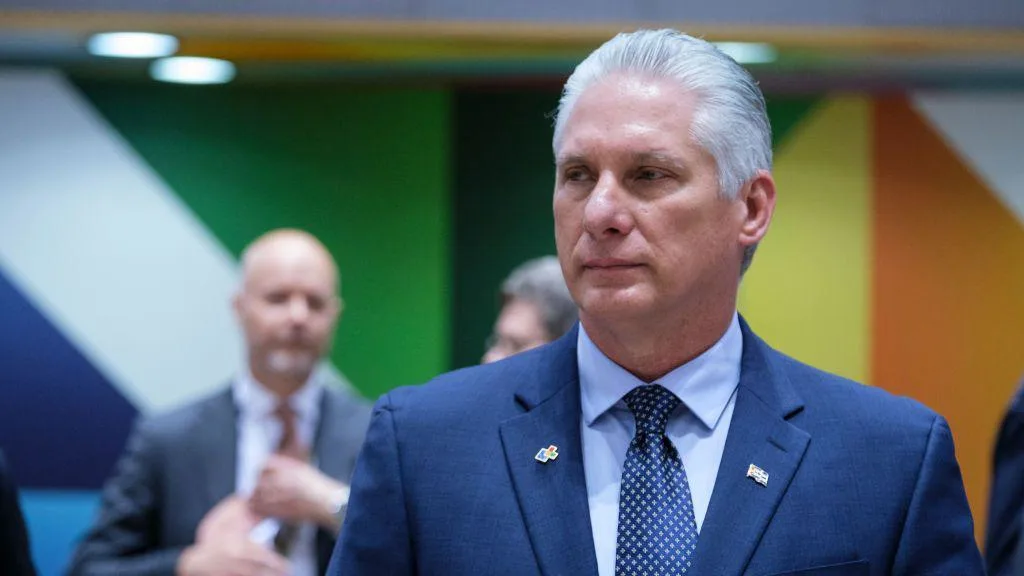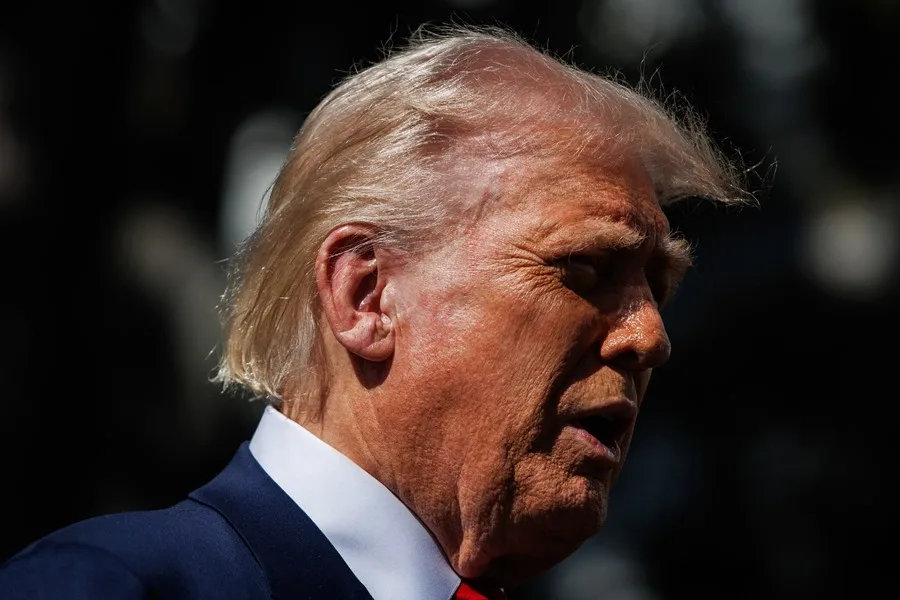International
Electoral abstention, the route to which the majority opposition in Venezuela clung again
The majority opposition of Venezuela resumed the route of abstention by deciding not to participate in the regional and legislative elections of last May 25, as it did 20 years ago, when it withdrew from the contest to elect deputies, although this time in a scenario in which it questions the legitimacy of President Nicolás Maduro.
“When the adversary withdraws from the field, from the field, one advances and takes the ground and exercises it,” Maduro said after the votes a week ago, in which only a group of opponents participated who ignored the guideline of the anti-Chavista majority, sheltered by the Democratic Unitary Platform (PUD), headed by María Corina Machado and Edmundo González Urrutia.
Maduro brought up what happened in 2005, when, he said, the opposition called for “total abstention.”
“And well,” added the Chavista leader, “they gave us the National Assembly (AN, Parliament) and the National Assembly 2005-2010 was the most fruitful there was.”
20 years ago, Chavismo took the 167 seats of Parliament before the complete withdrawal of the main opposition parties, which expressed distrust in the voting system.
This time, the PUD refused to attend these elections by denouncing fraud in the presidential elections of July last year, in which the National Electoral Council (CNE) proclaimed the victory of the president, of which the disaggregated results have not yet been disseminated. The anti-chavismo insists that the winner was its candidate, González Urrutia.
Machado and González Urrutia see the abstention of May 25 as an “act of dignity”.
The former deputy considered the abstention as a fourth “victory” of the opposition, after the 2023 primaries, of which she described as “crushing” the election of González Urrutia as – she said – “president” in 2024 and of the so-called ‘Operation Guacamaya’, in allusion to the departure from the country this month of five anti-Chavistas who were refugees, since March last year, in the residence of the Argentine Embassy in Caracas.
Despite the majority call, an opposition group detached itself from the PUD and ran in the May 25 votes, in which it achieved 11 deputies to Parliament compared to 253 of 285 with which the ruling party remained.
In this regard, the political scientist and deputy director of the Gumilla Center, Piero Trepiccione, told EFE that the 2005-2025 scenarios are “very different.”
“At that time, the forces that politically supported those in power in Venezuela had a lot of popular support, they controlled Venezuelan public opinion, they had superior support, even 60%, the polarization environment was much greater, more tense, harder,” he described.
In his opinion, the country was in the process of consolidating the “hyper-leadership” of then-President Hugo Chávez (1999-2013) and the opposition “was trying to understand that dynamic, those new power dynamics that emerged in the country from 1999, with the electoral victory of Hugo Chávez”.
“Of course,” said this expert, “that it was a decision that (with) time proved to be a mistake, because it was effectively not possible to obtain a minimum participation that would have been important at that time and that would have served as a tribune for the necessary institutional counterweights.”
And that wasn’t the only time. Anti-Chavism also withdrew from the 2018 presidential elections and the 2020 parliamentary elections, with which the ruling party regained the majority of the House after having lost it in 2015.
For the five-year period 2026-2031, Chavismo ensured, in addition to the parliamentary majority, 23 of 24 governors in the country.
Trepiccione considers that the majority anti-Chavism has, in terms of leadership, a “great reference” in the figure of Machado, but “it has again fallen into a rather serious process of fragmentation and dispersion.”
Therefore, he believes that a process of reorganization, restructuring and reunion is necessary “in terms of recovering positioning in the territory” and taking advantage of “those great expectations that there are in the country”.
“If the opposition manages to articulate forces, realign itself with that desire for change, give political directionality to that desire for change; without a doubt, it can quickly become an important counterweight in the political process that is being lived in the country,” he added.
The political scientist clarifies that the discussion must go beyond an election. “Here the issue is how to unify a strategy, how to build a joint strategy and how not to fall into the provocation of fragmentation,” he reflected.
International
Venezuela Debates Broad Amnesty Law Covering 27 Years of Chavismo

Venezuela’s Parliament began debating on Thursday a sweeping amnesty bill that would cover the 27 years of Chavismo in power, while explicitly excluding serious human rights violations and crimes against humanity.
The proposed legislation, titled the “Amnesty Law for Democratic Coexistence,” was introduced by interim President Delcy Rodríguez, who assumed power following the capture of Nicolás Maduro during a U.S. military operation.
The legislative session was convened for Thursday afternoon, with lawmakers holding an initial discussion focused on the general principles of the bill. This phase precedes a consultation process with civil society, after which the proposal will move to a final debate examining each article individually.
According to a draft of the bill obtained by AFP, the amnesty would apply to individuals accused of crimes such as “treason,” “terrorism,” and “incitement to hatred,” charges that were frequently brought against political prisoners over the past decades. The scope also includes offenses ranging from acts of rebellion to punishments imposed for social media posts or messages sent through private messaging services.
The bill’s explanatory text emphasizes reconciliation, stating that it seeks to move away from “vengeance, retaliation, and hatred” in favor of “opening a path toward reconciliation.”
However, the proposal explicitly excludes from its benefits crimes such as “serious human rights violations, crimes against humanity, war crimes, intentional homicide, corruption, and drug trafficking.”
These exclusions, the text notes, are based on strict compliance with the Venezuelan Constitution, which already prohibits granting amnesties or pardons for such offenses.
International
Díaz-Canel Calls for Talks With Washington Without Pressure as U.S. Tightens Oil Sanctions

Cuban President Miguel Díaz-Canel said on Thursday that his government is willing to engage in dialogue with the United States, provided that talks take place on equal terms and without pressure.
“Cuba is prepared to hold a dialogue with the United States on any issue that either side wishes to discuss,” Díaz-Canel said during a press conference broadcast nationwide on radio and television.
He stressed, however, that such dialogue would only be possible “without pressure, without preconditions, on the basis of equality, and with full respect for our sovereignty, independence, and self-determination.” The Cuban leader added that discussions should avoid issues that could be interpreted as interference in the country’s internal affairs.
Díaz-Canel’s remarks come at a time when Cuba is facing growing pressure from the administration of U.S. President Donald Trump, which has implemented a series of measures that have restricted the island’s access to fuel needed to generate electricity.
Washington has sought to prevent Cuba from receiving oil from Venezuela, its main ally for more than two decades, and has stepped up pressure to reduce crude shipments from Mexico. In addition, Trump signed an executive order in late January allowing the United States to impose tariffs on countries that sell oil to Cuba.
In that order, the U.S. president declared that Cuba represents an “unusual and extraordinary threat” to U.S. national security and foreign policy, accusing the island of aligning itself with hostile countries and actors.
International
HRW Warns Trump’s Influence Has Weakened Human Rights in Latin America

Human Rights Watch (HRW) warned that the political influence and rhetoric of U.S. President Donald Trump have contributed to a deterioration of human rights conditions across Latin America and the Caribbean. In its World Report 2026, the organization stated that several governments in the region have committed abuses against migrants and citizens, or have used U.S. policies as justification to impose harsher repressive measures.
During the first year of Trump’s new term, HRW observed that multiple countries violated the rights of foreign nationals under direct pressure from Washington. Other governments deepened security strategies based on militarization, mass detentions and excessive use of force, according to the report.
“The impact of the Trump administration has undoubtedly been negative in Latin America and the Caribbean,” said Juanita Goebertus, HRW’s Americas director. However, she emphasized that “governments in the region remain responsible for defending democracy and fundamental rights, regardless of who is in power in Washington.”
HRW also reported that the United States significantly reduced cooperation funding for human rights organizations and independent media. At the same time, countries such as El Salvador, Peru and Ecuador passed laws allowing the arbitrary closure of civil society organizations and media outlets, weakening democratic systems and institutional checks and balances.
The organization further criticized what it described as a “double standard” in U.S. foreign policy, which condemns human rights violations in Venezuela, Cuba and Nicaragua while overlooking serious abuses committed by allies such as El Salvador, Peru and Ecuador. The report also included criticism of the U.S. military attack against Venezuela in early 2026, warning that it could strengthen Nicolás Maduro’s regime and respond primarily to U.S. political and commercial interests.
-

 International3 days ago
International3 days agoEpstein Denies Being ‘the Devil’ in Newly Released Video Interview
-

 International3 days ago
International3 days agoSpain Seeks to Ban Social Media Access for Children Under 16
-

 International3 days ago
International3 days agoMexico to Send Humanitarian Aid to Cuba Amid U.S. Threats Over Oil Shipments
-

 International3 days ago
International3 days agoPetro Resumes Extraditions, Sends Top Criminal to U.S. Before White House Talks
-

 International3 days ago
International3 days agoMexico Arrests Suspect in Shooting of Sinaloa Lawmakers
-

 International3 days ago
International3 days agoHypothermia Linked to Most Deaths During New York’s Recent Cold Spell
-

 International2 days ago
International2 days agoDelcy Rodríguez Takes Control of Chavismo as Venezuela Enters a U.S.-Supervised Transition
-

 International2 days ago
International2 days agoHRW Warns Trump’s Influence Has Weakened Human Rights in Latin America
-

 International18 hours ago
International18 hours agoDíaz-Canel Calls for Talks With Washington Without Pressure as U.S. Tightens Oil Sanctions
-

 Central America18 hours ago
Central America18 hours agoPanama Will Not Be Threatened, President Says Amid Rising Tensions With China
-

 Central America5 days ago
Central America5 days agoCosta Rica Goes to the Polls as Voters Choose Continuity or Change
-

 International18 hours ago
International18 hours agoVenezuela Debates Broad Amnesty Law Covering 27 Years of Chavismo
-

 Central America3 days ago
Central America3 days agoLaura Fernández Says She Will ‘Never’ Allow Authoritarianism in Costa Rica
-

 Central America18 hours ago
Central America18 hours agoBukele’s Approval Rating Climbs to 91.9% in El Salvador, Survey Shows
-

 International3 days ago
International3 days agoNFL Investigating Emails Linking Giants Executive to Jeffrey Epstein


























